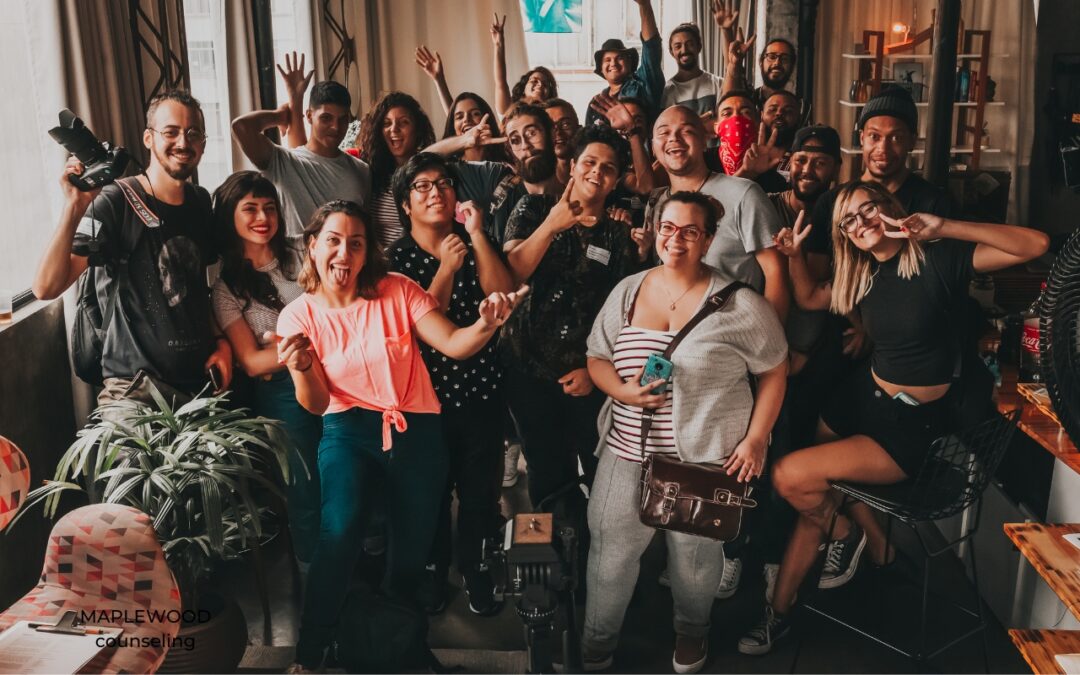
Help With The Most Common Family Problems for Families
Get Therapy for Common Family Problems
Get Help for Families Challenges to Resolve Common Issues Get StartedHelp With The Most Common Family Problems
Navigating the Maze of Family Challenges
Families problems can cause deep pain, sadness, anger, frustration, sadness and so many other intense emotions. From communication breakdowns to financial stress, families face numerous hurdles that can disrupt harmony and create tension in the household. Recognizing and addressing these issues is crucial for maintaining healthy family relationships and ensuring everyone’s well-being.
In this blog post, we’ll explore some of the most common family problems, offering insights and practical solutions tailored to parents, couples, and families. By understanding these challenges, you can take proactive steps to overcome them and build stronger bonds with your loved ones.
Communication Breakdown
Communication is the glue that holds families together, yet it’s often one of the first things to suffer during times of stress. When family members struggle to express their needs and feelings, misunderstandings and conflicts can arise. Signs of a communication breakdown might include frequent arguments, feelings of being unheard or misunderstood, and a general sense of disconnection.
Improving communication skills within the family requires conscious effort. Start by creating an environment where everyone feels safe to share their thoughts. Active listening is key; it involves truly hearing what the other person is saying without interrupting or preparing your response in advance. Setting aside regular times for family discussions can also help, allowing everyone to voice their concerns and ideas in a structured manner.
If communication issues persist, family counseling can be a valuable resource. A professional can provide guidance and techniques to improve dialogue and understanding among family members. Remember, effective communication is a skill that takes time to develop but can significantly enhance family relationships.
Financial Stress
Money matters can be a major source of tension in families. Financial stress may lead to arguments, anxiety, and even resentment between partners. Its impact on family dynamics can be profound, affecting everything from daily interactions to long-term planning.
Managing family finances requires transparency and cooperation. Begin by having open discussions about your financial situation, including income, expenses, debts, and savings goals. Establish a budget that aligns with your family’s priorities and stick to it as closely as possible. It’s also important to set aside funds for emergencies to alleviate stress when unexpected expenses arise.
Consider seeking advice from a financial counselor if you’re struggling to manage your finances. They can provide expert guidance on budgeting, saving, and reducing debt. By taking control of your financial situation, you can minimize stress and create a more harmonious family environment.
Constant Arguments
Arguments are a normal part of family life, but when they become frequent and intense, they can damage relationships. Constant arguing may be a sign of deeper issues, such as unaddressed resentments or communication breakdowns.
To break the cycle of constant arguments, it’s essential to address the underlying causes. This might involve discussing past hurts and finding ways to move forward together. Learning conflict resolution skills and setting boundaries can also help reduce the frequency of arguments.
If you find yourselves unable to resolve conflicts on your own, consider seeking help from a therapist or counselor. They can provide objective insights and guide you towards healthier communication patterns.
Coping with Divorce
Divorce can be a devastating experience for all family members involved, especially children. The emotional and practical challenges of separating from a partner can cause significant stress and turmoil within the family unit.
If you’re going through a divorce, it’s crucial to prioritize self-care and seek support from loved ones. This may involve spending time with friends, engaging in activities you enjoy, or seeking therapy to process your emotions. For children, maintaining a sense of routine and stability can help them cope with the changes in their family structure.
It’s also essential to communicate openly and honestly with your ex-partner about co-parenting arrangements. Putting aside personal differences for the sake of your children’s well-being is vital during this difficult time.
Balancing Work and Family Life
In today’s fast-paced world, juggling work and family life can be challenging for many parents. The demands of a career can often clash with family responsibilities, leading to feelings of guilt and frustration. Achieving a healthy work-life balance is essential for maintaining well-being and nurturing family relationships.
To achieve balance, it’s important to set clear boundaries between work and home life. Establish specific times for work and family activities, and communicate these boundaries with your employer and family members. Delegating tasks at work and at home can also help ease the load, allowing you to focus on what’s truly important.
Flexible working arrangements, such as remote work or adjusted hours, may also be beneficial. Discuss these options with your employer if you find it challenging to meet both work and family obligations. Remember, finding balance is an ongoing process that requires flexibility and adaptability.
Parenting Conflicts
Parenting is a rewarding but demanding role that can sometimes lead to conflicts between partners. Differences in parenting styles, discipline approaches, and priorities can create tension and disrupt family harmony. Resolving these conflicts is crucial for effective co-parenting and fostering a positive environment for children.
Start by acknowledging that differences in parenting styles are natural and can offer valuable perspectives. Engage in open discussions with your partner about your parenting philosophies, and seek common ground where possible. It’s essential to present a united front to your children, as inconsistency can lead to confusion and behavioral issues.
When conflicts arise, consider seeking the help of a parenting counselor. They can provide strategies for resolving disagreements and improving co-parenting dynamics. Remember, effective parenting requires teamwork, compromise, and a shared commitment to your children’s well-being.
Sibling Rivalry
Sibling rivalry is a common occurrence in families, characterized by jealousy, competition, and conflict between brothers and sisters. Understanding the root causes of sibling rivalry is the first step in addressing it effectively. These conflicts can stem from perceived favoritism, differences in temperament, or competition for parental attention.
Promoting sibling harmony involves fostering a sense of cooperation and mutual respect among siblings. Encourage collaborative activities where siblings can work together towards a common goal. Recognize and celebrate each child’s unique strengths and achievements to minimize feelings of jealousy.
It’s also important to establish fair rules and consequences for conflicts, ensuring consistency in how you address disputes. If sibling rivalry persists, family counseling can provide additional support and tools for resolving conflicts. By nurturing positive relationships between siblings, you can create a more harmonious family environment.
Household Responsibilities
The division of household responsibilities can be a source of tension in families, particularly when one member feels overburdened. Sharing household duties fairly is essential for maintaining balance and preventing resentment.
Begin by assessing the current distribution of tasks and identifying areas where adjustments are needed. Involve all family members in discussions about household responsibilities, considering everyone’s strengths and preferences. Creating a chore chart or schedule can help ensure tasks are distributed equitably and consistently.
Flexibility is key; be open to adjusting responsibilities as family dynamics and schedules change. Encouraging teamwork and cooperation can also enhance family relationships and create a sense of shared ownership in maintaining the household.
Quality Time Together
In the hustle and bustle of daily life, spending quality time together as a family can sometimes take a backseat. However, regular family bonding is vital for strengthening relationships and creating lasting memories.
Prioritize family time by scheduling regular activities that everyone enjoys. This could be as simple as a weekly game night, family walks, or cooking meals together. Encourage open communication during these times, providing opportunities for everyone to share their thoughts and experiences.
It’s also important to unplug from technology during family activities, allowing everyone to be fully present and engaged. By making quality time a priority, you can nurture stronger connections and create a supportive family environment.
Conclusion
Navigating the challenge of family problems can be daunting, but recognizing and addressing these common issues is the first step towards building healthier relationships. From communication breakdowns to financial stress and parenting conflicts, each challenge offers an opportunity for growth and understanding.
By implementing the strategies outlined in this post, you can create a harmonious family environment where everyone feels supported and valued. Remember, seeking professional guidance, such as family or marriage counseling, can provide additional support and tools for overcoming obstacles.
Take proactive steps today to strengthen your family bonds and create a nurturing environment for all members. Your efforts will not only benefit your family now but also lay the foundation for a brighter future together.
If you need help with family problems so things can change for the better, reach out.
Need Help with Step Family or Blended Family Problems?







